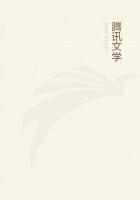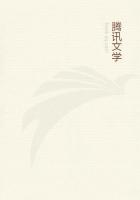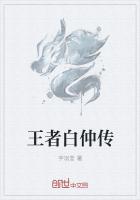What I have said of Dickens reminds me that I had been reading him at the same time that I had been reading Ik Marvel; but a curious thing about the reading of my later boyhood is that the dates do not sharply detach themselves one from another. This may be so because my reading was much more multifarious than it had been earlier, or because I was reading always two or three authors at a time. I think Macaulay a little antedated Dickens in my affections, but when I came to the novels of that masterful artist (as I must call him, with a thousand reservations as to the times when he is not a master and not an artist), I did not fail to fall under his spell.
This was in a season of great depression, when I began to feel in broken health the effect of trying to burn my candle at both ends. It seemed for a while very ****** and easy to come home in the middle of the afternoon, when my task at the printing-office was done, and sit down to my books in my little study, which I did not finally leave until the family were in bed; but it was not well, and it was not enough that I should like to do it. The most that can be said in defence of such a thing is that with the strong native impulse and the conditions it was inevitable. If I was to do the thing I wanted to do I was to do it in that way, and I wanted to do that thing, whatever it was, more than I wanted to do anything else, and even more than I wanted to do nothing.
I cannot make out that I was fond of study, or cared for the things I was trying to do, except as a means to other things. As far as my pleasure went, or my natural bent was concerned, I would rather have been wandering through the woods with a gun on my shoulder, or lying under a tree, or reading some book that cost me no sort of effort. But there was much more than my pleasure involved; there was a hope to fulfil, an aim to achieve, and I could no more have left off trying for what I hoped and aimed at than I could have left off living, though I did not know very distinctly what either was. As I look back at the endeavor of those days much of it seems mere purblind groping, wilful and wandering. I can see that doing all by myself I was not truly a law to myself, but only a sort of helpless force.
I studied Latin because I believed that I should read the Latin authors, and I suppose I got as much of the language as most school-boys of my age, but I never read any Latin author but Cornelius Nepos. I studied Greek, and I learned so much of it as to read a chapter of the Testament, and an ode of Anacreon. Then I left it, not because I did not mean to go farther, or indeed stop short of reading all Greek literature, but because that friend of mine and I talked it over and decided that I could go on with Greek any time, but I had better for the present study German, with the help of a German who had come to the village. Apparently I was carrying forward an attack on French at the same time, for I distinctly recall my failure to enlist with me an old gentleman who had once lived a long time in France, and whom I hoped to get at least an accent from.
Perhaps because he knew he had no accent worth speaking of, or perhaps because he did not want the bother of imparting it, he never would keep any of the engagements he made with me, and when we did meet he so abounded in excuses and subterfuges that he finally escaped me, and I was left to acquire an Italian accent of French in Venice seven or eight years later. At the same time I was reading Spanish, more or less, but neither wisely nor too well. Having had so little help in my studies, I had a stupid pride in refusing all, even such as I might have availed myself of, without shame, in books, and I would not read any Spanish author with English notes. I would have him in an edition wholly Spanish from beginning to end, and I would fight my way through him single-handed, with only such aid as I must borrow from a lexicon.
I now call this stupid, but I have really no more right to blame the boy who was once I than I have to praise him, and I am certainly not going to do that. In his day and place he did what he could in his own way; he had no true perspective of life, but I do not know that youth ever has that. Some strength came to him finally from the mere struggle, undirected and misdirected as it often was, and such mental fibre as he had was toughened by the prolonged stress. It could be said, of course, that the time apparently wasted in these effectless studies could have been well spent in deepening and widening a knowledge of English literature never yet too great, and I have often said this myself; but then, again, I am not sure that the studies were altogether effectless.
I have sometimes thought that greater skill had come to my hand from them than it would have had without, and I have trusted that in ****** known to me the sources of so much English, my little Latin and less Greek have enabled me to use my own speech with a subtler sense of it than I should have had otherwise.
But I will by no means insist upon my conjecture. What is certain is that for the present my studies, without method and without stint, began to tell upon my health, and that my nerves gave way in all manner of hypochondriacal fears. These finally resolved themselves into one, incessant, inexorable, which I could escape only through bodily fatigue, or through some absorbing interest that took me out of myself altogether and filled my morbid mind with the images of another's creation.

